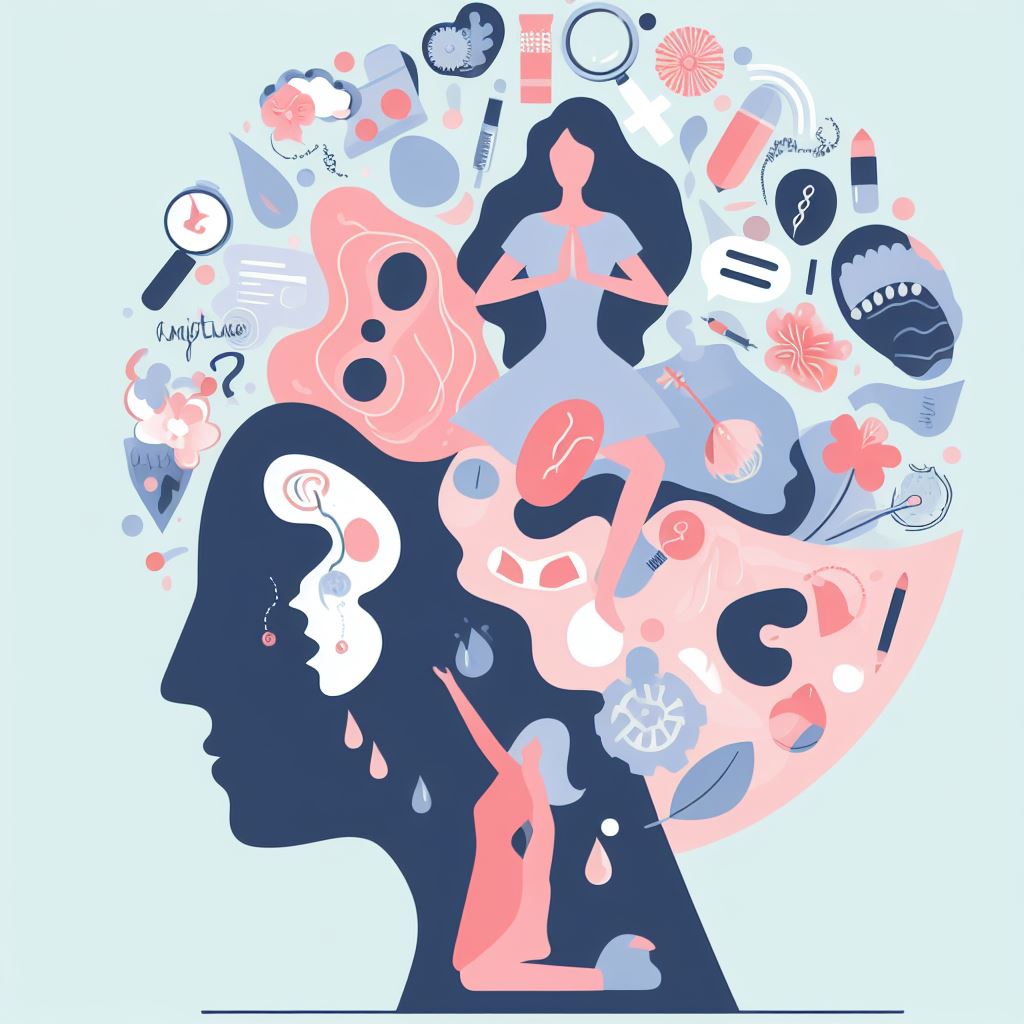Mental health is a major concern for the general well-being of women. Although each individual is unique, several factors can have a significant influence on their mental health.
In this article, we will explore these different factors and analyze how they can impact women’s well-being.
– Hormones and the menstrual cycle:
Hormonal fluctuations, particularly during the menstrual cycle, can have a significant impact on women’s mental health.
Changes in estrogen and progesterone levels can lead to mood swings, irritability, anxiety, and depression. It is important to recognize these changes and take steps to manage them to maintain good mental health.
– Sociocultural factors:
Women face a multitude of sociocultural pressures that can impact their mental health. Idealized beauty standards, gender stereotypes, family and career expectations, and gender discrimination can contribute to high levels of stress, depression, and anxiety. Challenging these norms and promoting respectful and egalitarian environments is essential to preserving women’s mental health.
– Past trauma and experiences:
Women may also be exposed to past trauma and experiences that can impact their mental health. Physical, emotional, or sexual abuse, domestic violence, loss of loved ones, and other trauma can have profound consequences. It is crucial to recognize the importance of addressing trauma and providing appropriate support to promote healing and resilience.
– Stress Factors:
Stress is an important factor that can affect women’s mental health.
Pressures from work, finances, family responsibilities, and social demands can lead to feelings of burnout, anxiety, and depression. Finding ways to manage stress, such as regular exercise, relaxation, meditation, and creating healthy boundaries, is essential to maintaining mental well-being.
– Social support and interpersonal relationships:
The quality of interpersonal relationships and social support plays a crucial role in women’s mental health. Strong emotional connections, a network of caring friends and loved ones, and access to mental health professionals can help you maintain a healthy emotional balance and cope with difficulties.
Conclusion:
Women’s mental health is influenced by a multitude of factors, from hormones and menstrual cycles to sociocultural factors, trauma, stress, and social support. Recognizing these different factors and proposing appropriate interventions, it is possible to promote the mental well-being of women and create environments conducive to their development. Ensuring that women have access to adequate supportive care and resources is essential to maintaining their mental health and overall quality of life.

